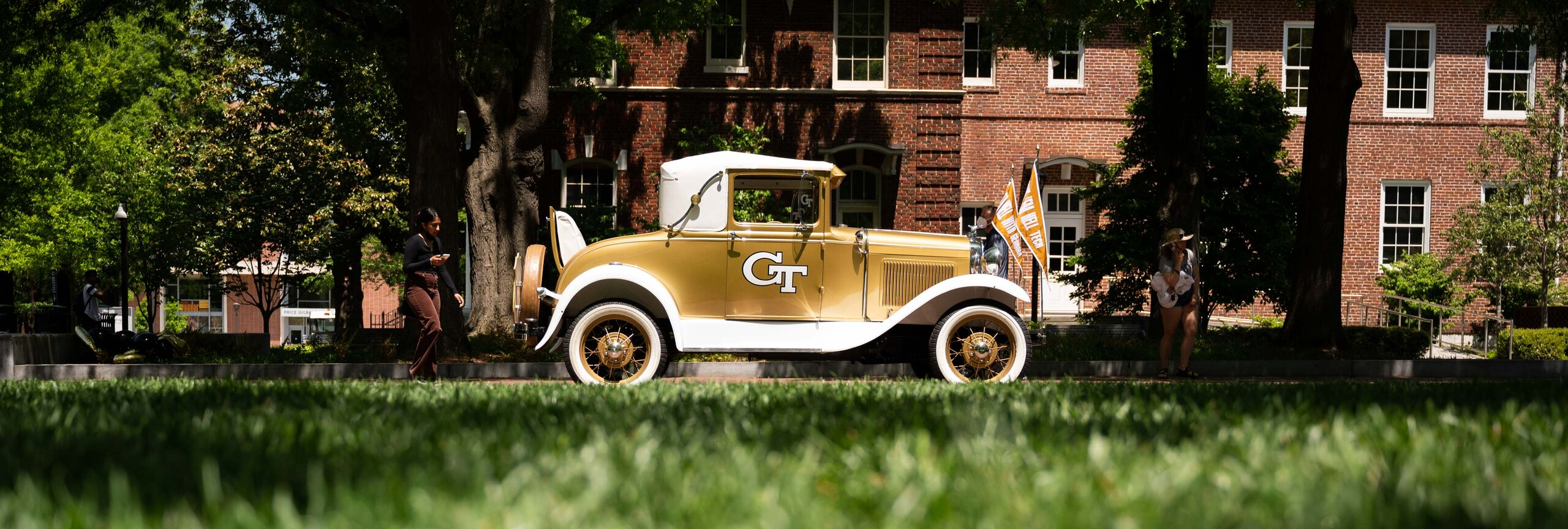
At Georgia Tech, we are a network of people, units, departments, and cabinet areas who advance well-being outcomes by learning together, aligning, and integrating our actions to achieve broad, institutional change.
We have implemented multiple Roadmap action strategies in pursuit of our strategic goal to cultivate well-being for students, faculty, and staff. Action strategies are activated by project teams composed of a project manager, core team members, and subject matter experts (SMEs).
Project Highlights
Project progress, findings, and outcomes are shared with Tech community members to inform decision-making across the Institute. Review our progress to date in pursuit of cultivating well-being for students, faculty, and staff below. Together, these selected highlights demonstrate some of the measurable progress being made across the Institute to co-create the conditions for student success and embed well-being in the everyday employee experience.
Cultivate Well-Being Highlights Tell us how Tech can improve well-being
Project Reports
After completing a significant phase in the implementation of a Roadmap action strategy, project teams produce strategy reports to share with the Tech community. We encourage you to use the insights and recommendations in these reports to help drive the Cultivate Well-Being strategic initiative forward.
Roadmap with a Focus on Students
Action Strategy 1D – Effective Wellness Communications
The purpose of the Effective Health Communications strategy is to assess, unify, streamline, and execute health- and wellness-related communications and marketing efforts across the Georgia Tech campus.
Project Team and SMEs: Joi Alexander, Ashlie Bowman, Jaeda Bennett, Shannon Croft, Tara Holdampf, and Ben Holton
View Report
Action Strategy 2A – Wellness Program Inventory
The Wellness Program Inventory is a first step in generating a more coordinated, cogent, and collaborative approach to the delivery of programs and services in support of health, wellness and well-being that is resource efficient and operationally effective.
Project Team and SMEs: Joi Alexander, Richelle Fields, Kimberly Goler-Stubbs, Tiffiny Hughes-Troutman, Rebecca Pope-Ruark, Sharon Riehl, Brian Smith, Jamie Troup, and Heather Zesiger
View Report
Action Strategy 2B – Accessible Mental Health System
High quality and accessible mental health care is critical because research shows that students’ mental health and well-being is a determining factor in their academic engagement and persistence towards graduation. This project explores how best to go beyond case management and counseling services as the sole means of addressing mental health concerns, and to create a more comprehensive mental health system that included prevention options, self-care strategies, community support, in addition to intervention.
Project Team and SMEs: Joi Alexander, Vidal Annan, Ashlie Bowman, Shannon Croft, John Stein
Action Strategy 2C – Centering Prevention
Following the 2022 re-branding of the office formerly known as Health Initiatives to the current Wellness Empowerment Center (WEC), this project explored the extent to which the WEC is embracing an emphasis on primary prevention and a public health approach in the first 1.5 years of its evolution.
Project Lead: Joi Alexander
Action Strategy 2E – Identifying Health Disparities
This project analyzed existing GT student survey data to identify where there are disparities in reported outcomes between demographic categories including gender, race, ethnicity, citizenship and year in school. Findings can be used by staff, faculty, administrators and student leaders to collaborate on closing health equity gaps through programs, services, cultural transformation, policies, practices and other interventions at an individual and community level.
Project Team and SMEs: James Black, Jorge Breton, Lacy Hodges, Rafael Soares, and Brenda “B” Woods
Action Strategy 2H – Exploring Basic Needs
We believe that if the basic needs of every student are met, then every student will be able to thrive and flourish at Georgia Tech. We also realize that access to basic needs varies among students. This project is the first phase of exploring the basic needs of GT students for food and housing with an end goal of improving programs and services.
Project Team and SMEs: Kate Curnow, Marc Ebelhar, Steve Fazenbaker, Kathleen Kirk, and Charmaine Troy
Action Strategies 2I & 3B - Artful Wellness
This project explores the role of arts-based programming and resources in the Georgia Tech student wellness experience. Although Georgia Tech is a STEM focused institution, there is a high level of interest and appreciation for the arts, especially as stress relief and community building opportunities.
The knowledge gained from this project will be used to provide more strategic and targeted programming and communication for Georgia Tech students.
Project Team and SMEs: Jamie Alt, D’Andrea Allen, Kara Wade, Michelle Powell, Kate Silverio
Action Strategy 3A – First Year Wellness Experience
This project informed the development of the 2024-2025 First Year Wellness Experience to help students transition smoothly into college life, enhance their overall wellness, and build a supportive community. By the end of the 2024-2025 academic year, first year students will learn about and apply skills in each of the 8 Wellness Dimensions.
Project Team and SMEs: Joi Alexander, Jenny Cotton, Sheree Gibson, Ben Holton, Houston Freeman, Shiraz Karaa, Colleen Riggle, Chris Ruiz, Christie Stewart, Leksi Whatley and Kari White
(text and background only visible when logged in)
Roadmap with a Focus on Faculty and Staff
Action Strategy 1A - Assess Needs
This project explored existing and desired data sources on staff and faculty wellness outcomes, including indicators such as engagement and retention to identify the priority areas to address in cultivating well-being for faculty and staff. Findings will inform decision-making and quality improvement.
Project Team and SMEs: David Bamburowski, Diamond Ford, Yolanda McDaniel, Steven Terry, and Jason Wang
Action Strategies 1B and 2A – Programs, Services Operational Effectiveness
The first phase of this project was pursued concurrently to Student Roadmap Action Strategy 2A and is summarized in the Wellness Program Inventory report linked above.
Action Strategy 1D - Part A: Trauma-informed Marketing and Communications
This project focused on the development of resources for campus leaders, partners, and communicators, so they could communicate about employee deaths in a more cogent, compassionate, and trauma-informed way.
Project Team and SMEs: Kristen Bailey, Beth Cabrera, Chaundra Grant, Narin Hassan, Rachael Pocklington, Meagan Shorey, Kelsee Ward.
Institute Surveys
Georgia Tech participates in several surveys that provide valuable insight into self-reported behaviors, perceptions, and indicators related to student, faculty, and staff well-being. Data on our progress come from qualitative sources as well as regular implementation of these surveys.
More information on student surveys More information on the COACHE survey More information on the Gallup Q12 survey
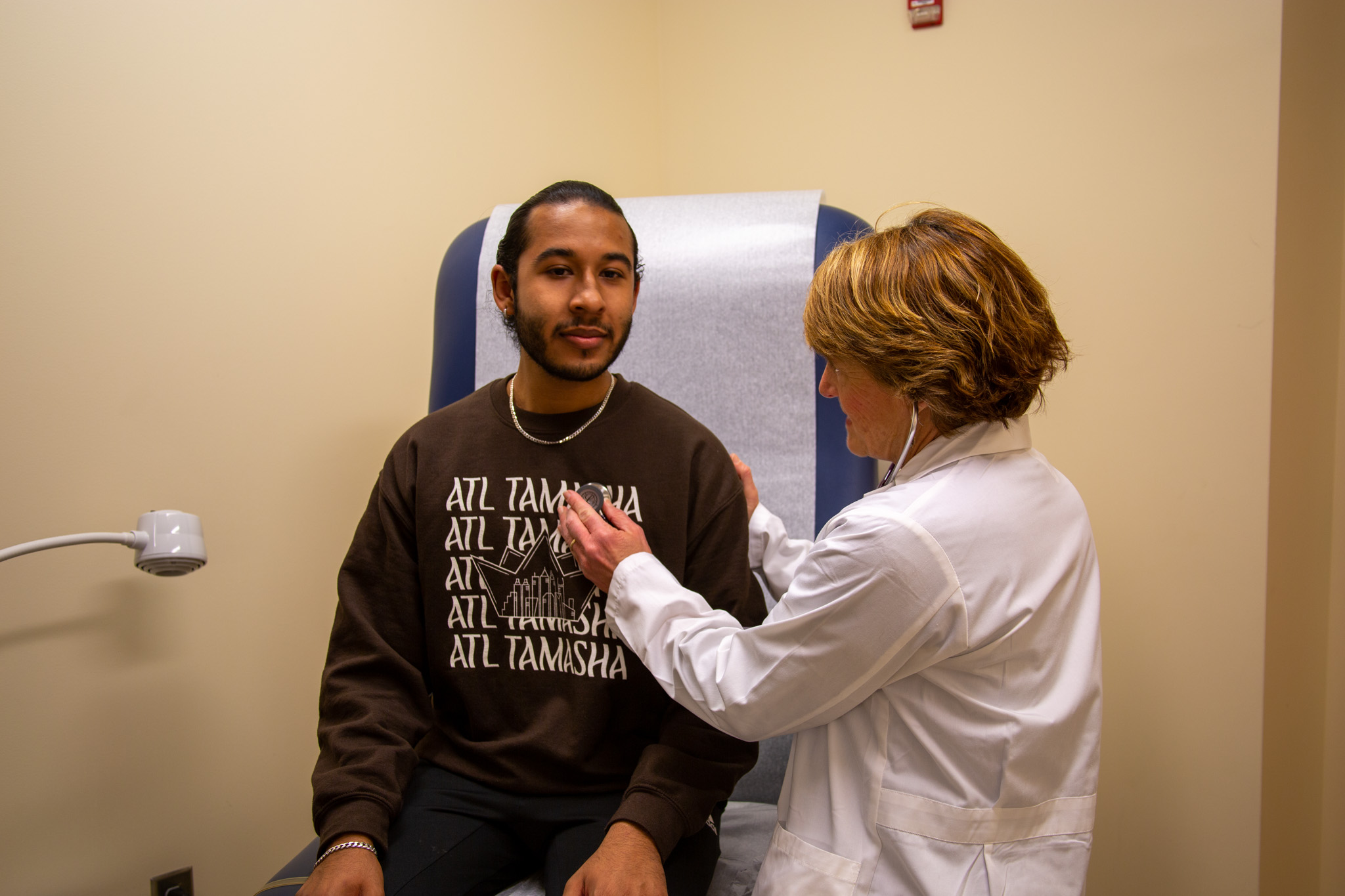
2025 American College Health Association – National College Health Assessment III (ACHA – NCHA III)

2023 Healthy Minds Study
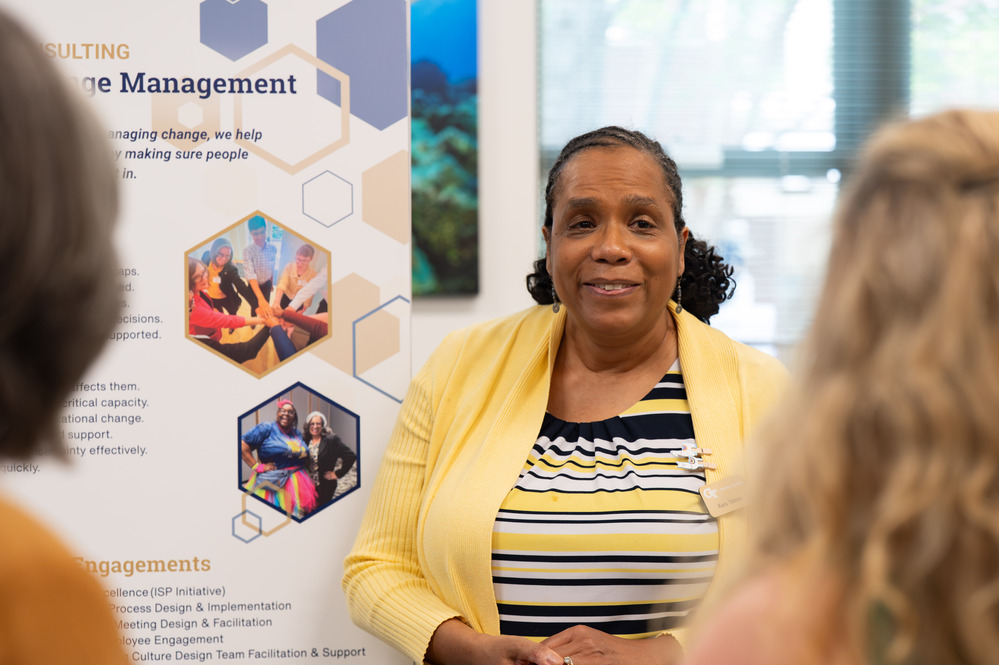
2024 Gallup Q12 Engagement Survey
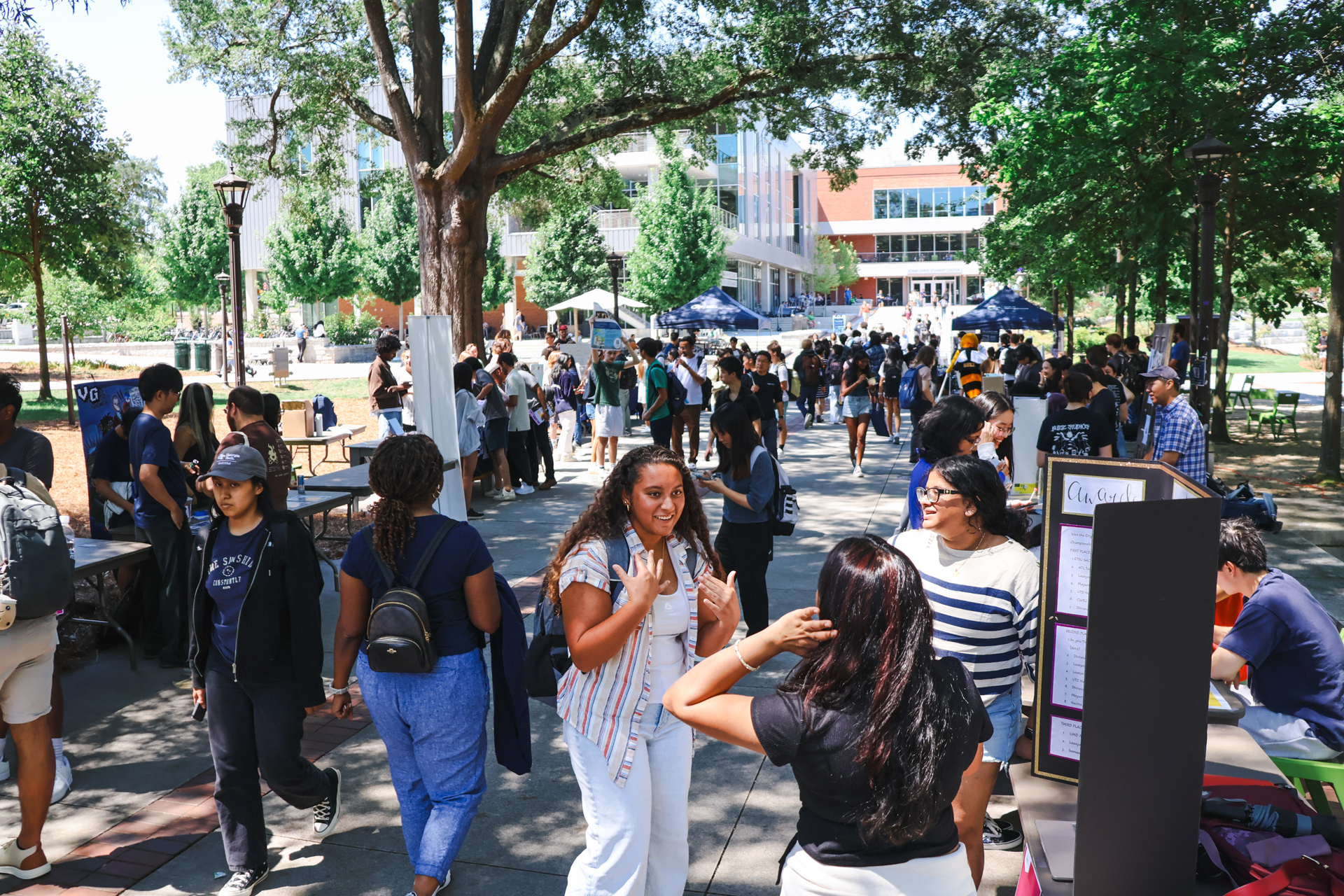
2023 National Survey of Student Engagement (NSSE)

2023 Graduate Student Experience Survey – Perceptions Regarding Wellness
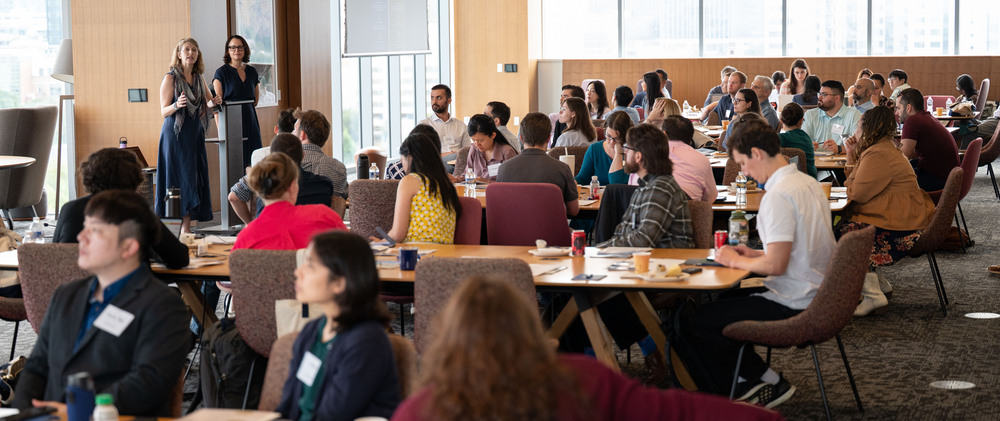
2024 Collaborative on Academic Careers in Higher Education (COACHE) Survey
Early Years Evaluation
In Spring 2025, our office launched a mixed methods, multi-part evaluation, with support from the Office of Research and Assessment (ORA) in Student Engagement and Well-Being and in collaboration with cross-Institute partners. The evaluation report below represents our commitment to continuous improvement and includes findings and recommendations for next steps.